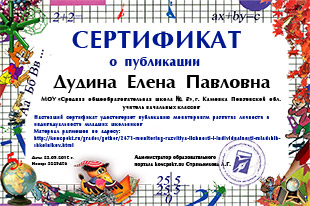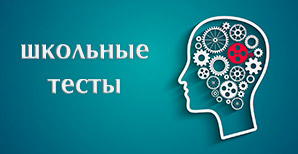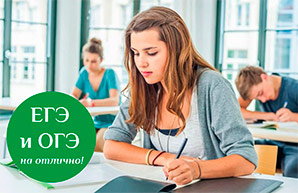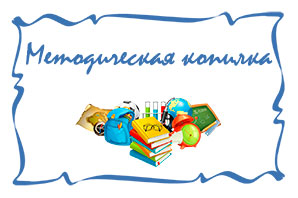Урок-игра по английскому языку 7 класс "Школа и школьное образование"
Цели урока:
- закрепить программный материал, способствовать углублению и расширению знаний учащихся по предмету;
- поддерживать интерес к предмету "Английский язык" и культуре Великобритании;
- воспитывать умение работать в коллективе и принимать совместное решение;
- развивать память, внимание, мышление учащихся, их творческие и коммуникативные способности.
Ход урока
Учитель: Dear children, today we are speaking about British schools. I promise, our game will be interesting.
- You will get stars for every correct answer. And now let me introduce our teams.
Short greeting:
- Hello! We are "Stars".
- Hello! We are "Peppers". We are ready to start.
Task 1
Учитель: How many "school" words do you remember? I suggest you packing your bags. Example: I put paints into my backpack. (У каждой команды на столе рюкзак или сумка и набор школьных принадлежностей)
Task 2
Учитель: You know a lot about schools in England. Ask your opponents questions beginning with "Do you believe that". (Нижеследующие предложения вывести на экран. Команды задают вопросы соперникам по очереди)
- In England pupils start education at the age of 5.
- Reception class lasts 2 years.
- In England pupils spend seven years in primary school.
- The school year in England begins on the 1 of September.
- Pupils sleep a lot in primary school.
- Parents have to pay for their children’s education in state schools.
- In England pupils go to school six days a week.
- The discipline is very strict in public schools.
- The school day is usually over at 4 p.m.
- In England the summer holidays are longer than in Russia.
Task 3
Учитель: Guess the subject. (Ведущий читает информацию о предмете, ответ дает та команда, игроки которой первыми поднимут руку)
- the study of numbers and shapes including algebra, geometry and arithmetic. (Mathematics)
- the subject that gives you ideas about composers and their works. (Music)
- a class in which you exercise your body. (Physical Education)
- the science that deals with energy, studies light, sound, electricity, etc. (Physics)
- the science that studies countries, their people, climate, oceans, rivers, mountains, etc. (Geography)
- the scientific study of living things. (Biology)
- the subject that gives you information about paintings, sculptures, etc. (Art)
- the subject that gives you information about novels, poems, plays and their authors. (Literature)
- the study of computers and the programs for them. (Computer studies)
- the subject in which they give you ideas about the official language of Britain and the USA and some other countries. (English)
Task 4
Учитель: Insert the right words in these texts about Russian and English schools. (Каждая команда получает текст на карточке. Задание выполняется коллективно с заранее оговоренным лимитом времени)
English pupils start schooling at the age of... Pupils stay in .... school seven years. Pupils learn to read, write, count, draw and spend a lot of time .... They don’t wear .... In England pupils go to secondary school when they are ....
Secondary ... in England lasts five years. In England they stay in ... school shorter than in Russia. Secondary education is free in ... schools. The English school year has three .... English schoolchildren have Christmas, ... and summer holidays. Summer holidays begin in ... and finish in September.
Правильные ответы: 5, primary, playing, uniforms, 11, education (school), secondary, state, terms, Easter, July.
Учитель: How well do you know the English system of education? Complete the sentences. (Предложения по одному появляются на экране. Команды дают ответы по очереди, у них есть право обсудить ответ в случае необходимости)
- English pupils start schooling at the age of… (five)
- Primary education in England lasts … (seven years)
- Secondary education in England lasts… (five years)
- Most children in England do not go to private schools, they go to… (state schools)
- English schools have no numbers, they have… (names)
- Parents do not pay for their children’s education in … (state schools)
- English school year never begins on … (Monday)
- In primary schools pupils usually don’t wear… (uniforms), but in secondary schools they do.
- When primary school pupils are eleven, they go to…. (secondary school)
- The English school year has… (three) terms.
- Pupils go to school… (five days) a week.
- Marks at English schools are not numbers. They are… (letters)
Task 5
Учитель: Every student would like to attend the perfect school. What does that mean for you? Let's do a mini-project "Our Dream school". (У каждой команды специальный пакет для выполнения проекта: половина листа ватмана, клеящий карандаш, фломастеры, ножницы, лист с нижеследующими словосочетаниями. Можно добавить свои идеи)
be a brightly decorated building; be a modern building; be free; offer any subjects students are interested in; have no boring and useless subjects; prepare for real life; talk freely to teachers; discuss any problems openly; listen to pupils’ opinion; understand pupils’ problems; have no tests; have no special uniform; have free lunches; be strict and have discipline; have many clubs
5 минут команды выполняют проект и обсуждают его защиту. На экран можно поместить полезные выражения:
- Teachers should (must)
- Pupils can (may)
- School should…
Команды защищают свой проект.
Рефлексия
У обеих команд на столе половина ватмана и набор шаблонов для смайликов.
Каждый член команды "рисует свое настроение" на шаблоне и приклеивает смайлик на общий лист команды. Обе команды прикрепляют листы к доске. Подводятся итоги игры.



